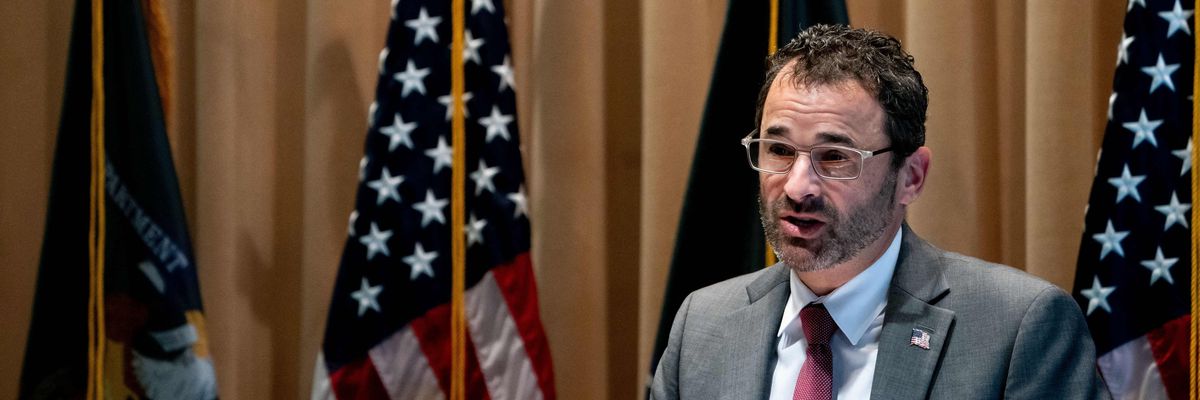The Internal Revenue Service said Friday that it has collected more than $500 million from wealthy tax dodgers since 2022, thanks to a funding boost that is now in jeopardy as Republican lawmakers work to claw back tens of billions of dollars from the agency.
The IRS has used a budget increase approved under the Inflation Reduction Act to ramp up enforcement efforts, targeting millionaires over significant sums of unpaid taxes. The agency announced Friday that it has retrieved $520 million through its new initiatives.
"This is why we fought for a fully funded IRS, and why it's so reckless for Republicans to try to slash its budget again," Rep. Gerry Connolly (D-Va.) wrote in response to the agency's announcement.
The congressional GOP, which has long worked to starve the IRS of funding in service to rich tax cheats, is aiming to more quickly implement $20 billion in cuts that they secured as part of last year's bipartisan deal to raise the debt ceiling, potentially compromising tax enforcement. The $20 billion represents a quarter of the $80 billion IRS funding boost in the Inflation Reduction Act, which Republicans unanimously opposed.
Under a spending tentative agreement that congressional leaders announced this past weekend, the $20 billion in IRS cuts would be frontloaded to 2024 instead of being spread out over two years. The deal still must pass Congress—hardly a forgone conclusion as far-right Republicans push House Speaker Mike Johnson (R-La.) to back out of the agreement, complaining that government spending is too high overall.
Johnson is also aiming to slash an additional $10 billion from the tax agency's 2025 funding.
Democratic leaders have faced backlash from progressive advocacy groups for accepting the GOP's push to expedite the $20 billion in cuts.
"Appeasing Republican extremists with cuts to the IRS is both fiscally and morally irresponsible," Groundwork Action wrote on social media earlier this week.
According to IRS data released last year, around 1.4 million wealthy Americans owe nearly $66 billion in federal taxes for 2017 through 2020. The wealthiest 2,000 nonfilers from that period collectively owe $923 million.




